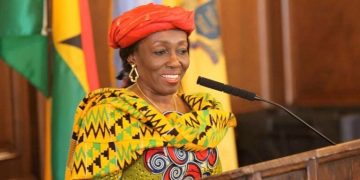Use of Refund Account to Offset Revenue Shortfalls in 2025 Budget Innovative, Says Dr. Priscilla Twumasi
Dr. Priscilla Twumasi, an economist with the University of Ghana’s Department of Economics, has described Ghana’s 2025 budget as one focused on fiscal consolidation, with a strong emphasis on expenditure cuts. She noted that this approach aligns with the government’s ongoing International Monetary Fund (IMF) program, now in its second year.
Speaking during the NorvanReports and Economic Governance Platform (EGP) X Space Discussion on the topic, “Resetting the Economy: Can Ghana’s 2025 Budget Achieve Fiscal Stability and Sustainable Growth”, on Sunday, March 16, 2025, Dr. Twumasi highlighted the budget’s innovative use of the tax refund account to offset revenue shortfalls from the removal of the Electronic Levy (E-Levy).
She commended this move, emphasizing that it demonstrates sensitivity to the economic burden on ordinary Ghanaians.
“The refund account is being used to plug revenue gaps, and that is an innovative approach, given that many individuals do not file taxes. However, in the medium term, the government must find a more sustainable revenue generation model,” she stated.
Dr. Twumasi proposed a digital transaction tax as a more targeted alternative, arguing that taxing businesses operating online could enhance revenue collection without imposing broad levies like the E-Levy. She criticized previous tax measures for their “wholesale” nature, which she believes lacked proper targeting due to limited research and policy precision.
Inflation Target Ambitious, Agricultural Allocation Inadequate
While acknowledging some positive aspects of the budget, Dr. Twumasi raised concerns about Ghana’s inflation projections.
“The projected end-of-year inflation rate of 11.9% appears overly ambitious, given that as of March, the rate stands at 23%,” she remarked.
She also questioned the level of investment in agriculture, stressing that the sector requires more aggressive support in irrigation, mechanization, and automation. According to her, budgetary allocations to agriculture have not significantly improved compared to previous years.
Industrial Policy and the 1D1F Setback
Dr. Twumasi also lamented the lack of continuity in Ghana’s industrial policy, particularly concerning the One District, One Factory (1D1F) initiative. She expressed disappointment over reports that some projects under the initiative had been put on hold or scrapped.
“While not every district is viable for a factory, the government has already invested taxpayers’ money in these projects. We need to identify and support the firms that have the potential to thrive, especially given the African Continental Free Trade Area (AfCFTA) opportunities,” she argued.
She criticized the tendency for industrial policies to shift with changes in government, stating that such inconsistencies hinder long-term economic growth and employment generation.
“Social policies often see continuity, but productive sectors like industry do not. We need to move beyond partisan considerations if we truly want to build a resilient economy,” Dr. Twumasi asserted.
Overall, while she acknowledged the budget’s prudent fiscal stance and signals of expenditure restraint, she called for a more sustainable revenue strategy, stronger agricultural investments, and continuity in industrial policy to ensure long-term economic stability and growth.








